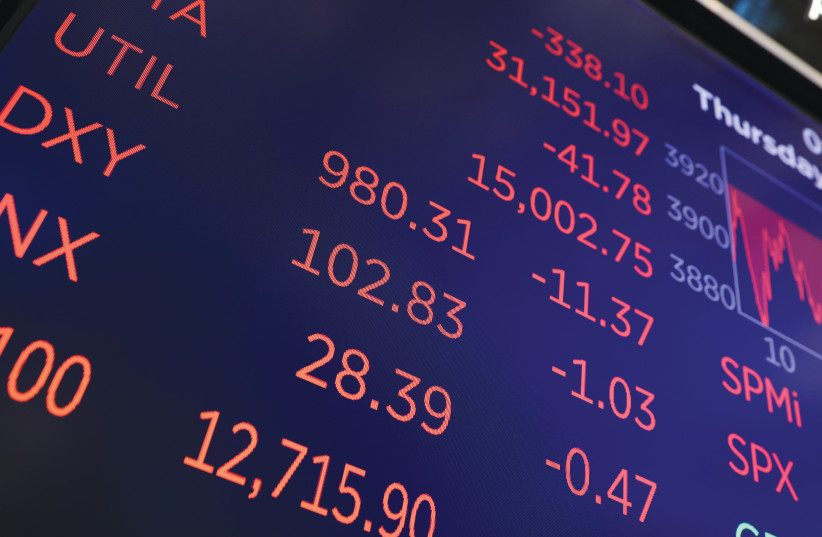The Russian/Ukrainian war. Surging inflation and spiking interest rates. Thankfully, we are winding up what has been a lousy year in stock markets worldwide.
As the global financial markets continue their volatile, and mostly down ways, I have been speaking with clients in an attempt to help calm their nerves. The way I have been trying to explain the recent market drop is that markets usually move two steps forward and one (sometimes large) step back.
As one client of mine put it, “Over the last two years I have made a lot of money, and this year I have lost a bunch, but if I look back where I was three years ago I am still higher now.”
I may sound like a broken record but stock investors need to understand that markets can go down just like they can go up. If you don’t have a long-term time horizon, you shouldn’t be investing in stocks.
Purim vs. Hanukkah
Rav Matisyahu Solomon quotes a well-known Bach (Rav Yoel Sirkas) in the Laws of Hanukkah where he asks, ”Why do we have a command to feast on Purim, while there is no such commandment on Hanukkah?”

The Bach explains that Purim came about because of the sin of eating (the Jews partook of the feast served by Achashverosh in which he used the captured vessels of the Temple). Since their bodies benefited from this meal, there was a decree against their bodies and they were sentenced to die.
The Jews repented by fasting, which served as atonement for the inappropriate consumption that took place during the party of the King. God responded to their repentance by miraculously saving them and then gave them a command to party and feast in commemoration of that salvation.
Hanukkah, on the other hand, had nothing to do with food. The punishment that preceded the Hanukkah miracle came about because the Jews had become lax in their service. They did not take the Temple service seriously. They were unenthusiastic; they did it by rote. They only lamely went through the motions.
What was the Heavenly decree? “You don’t care about the Temple? Okay. I will take it away from you.” Consequently, the Daily Offering was nullified and the Menorah lighting was taken away from them.
The Jews repented. They risked their lives to reinstitute the service in the Temple. The miracle of Hanukkah provided Divine assistance in allowing the priests to properly perform the service – as represented by the miracle of the long-lasting oil in the menorah.
What to do?
What should you do in the face of an upswing in market volatility? I think we can take a lesson from Hanukkah and the explanation of Rabbi Sirkas. Don’t let your portfolio be on autopilot; don’t just go through the motions. I am not talking about actively trading stocks: I am talking about proper allocation.
The most important step you can take is to make sure that your portfolio is allocated in a way that meets your financial goals and needs. If it is too aggressive, ease up on the gas pedal and lower stock exposure. If it’s too conservative, take advantage of the market drop to ‘buy low’ and add stock exposure to your portfolio.
It often happens that everything is allocated properly and the best thing to do is nothing: Just stay the course. But you still need to go through the analysis. What is proper for you when you are 30 isn’t the same as when you are 50.
Sallie Krawcheck, former CFO at Citigroup and founder and CEO of Ellevest wrote: “We’d all love for the market to go on a tear forever, reaching record highs and blowing minds; but the truth is, downturns are a reality, particularly if you are a long-term investor. The fact that downturns are inevitable can be scary – and off-putting, to be quite honest.”
She continues: “That’s why when the market throws you for a loop — as with most unnerving situations — you’re better off by not panicking but sticking to an actual plan instead. One that doesn’t consist of selling everything immediately in an attempt to cut your losses. Because if history has taught us anything, it’s that staying the course may be the best way to make it through a downturn.” Stay the course but also stick to an actual plan.
Stay calm
When dealing with your money, you need to concentrate on your long-term goals. As I already wrote, markets go up and down, and if you have a current financial plan, it would take this into account and there would be no need to get all nervous. The worst thing you can do as an investor is panic, sell everything and then wait for the market to recover. The market tends to snap back quickly. Large market gains often come about in quick and unpredictable spurts, and missing just a few days of strong market returns can negatively impact long-term performance.
Stay calm and tune out the noise in the media. Markets go up and down but the best way to make money over the long-term is to make sure that you are properly allocated and invest accordingly.
The information contained in this article reflects the opinion of the author and not necessarily the opinion of Portfolio Resources Group, Inc. or its affiliates.
Aaron Katsman is the author Retirement GPS: How to Navigate Your Way to A Secure Financial Future with Global Investing (McGraw-Hill). He is a licensed financial professional in both the United States and Israel, and helps people who open investment accounts in the US. Securities are offered through Portfolio Resources Group, Inc. (www.prginc.net). Member FINRA, SIPC, MSRB, FSI. For more information, call (02) 624-0995, visit www.gpsinvestor.com or email aaron@lighthousecapital.co.il.
